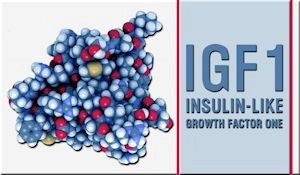Introduction
Urological health is a critical aspect of overall well-being, particularly for American males who are increasingly exposed to various environmental factors that can impact their urological systems. This article delves into the relationship between environmental influences and urological health, emphasizing the importance of awareness and preventive measures.
Environmental Pollutants and Urological Disorders
Environmental pollutants, including heavy metals, pesticides, and industrial chemicals, have been linked to an increased risk of urological disorders. For instance, exposure to cadmium, a heavy metal found in industrial emissions and tobacco smoke, has been associated with an elevated risk of prostate cancer. Similarly, pesticides like atrazine, commonly used in agriculture, have been shown to disrupt the endocrine system, potentially leading to conditions such as benign prostatic hyperplasia (BPH) and infertility.
Air Quality and Urinary Tract Infections
Poor air quality, characterized by high levels of particulate matter and other pollutants, can also affect urological health. Studies have indicated a correlation between air pollution and an increased incidence of urinary tract infections (UTIs). The mechanism behind this association is believed to involve the inhalation of pollutants, which can lead to systemic inflammation and compromise the body's immune response, making it more susceptible to infections.
Water Contamination and Kidney Health
Water contamination is another environmental factor that can significantly impact urological health, particularly kidney function. Contaminants such as arsenic, lead, and nitrates, often found in groundwater, can lead to chronic kidney disease and other renal issues. American males living in areas with high levels of water contamination are at a greater risk of developing these conditions, highlighting the need for regular water quality testing and filtration systems.
Climate Change and Urological Health
Climate change, with its associated rise in temperatures and extreme weather events, poses additional risks to urological health. Higher temperatures can lead to dehydration, which in turn increases the concentration of minerals in the urine, raising the risk of kidney stones. Moreover, natural disasters such as hurricanes and floods can disrupt access to clean water and sanitation facilities, further exacerbating the risk of UTIs and other urological infections.
Preventive Measures and Public Health Initiatives
To mitigate the impact of environmental factors on urological health, American males should adopt preventive measures and support public health initiatives. Regular screening for urological conditions, especially in high-risk areas, can facilitate early detection and treatment. Additionally, reducing exposure to environmental pollutants through lifestyle changes, such as quitting smoking and using air purifiers, can help protect urological health.
Public health initiatives should focus on improving air and water quality, regulating the use of harmful chemicals, and raising awareness about the link between environmental factors and urological health. By fostering a collaborative effort between individuals, communities, and policymakers, it is possible to create a healthier environment that supports the urological well-being of American males.
Conclusion
The impact of environmental factors on urological health in American males is a multifaceted issue that requires attention and action. By understanding the various ways in which pollutants, air quality, water contamination, and climate change can affect the urological system, individuals can take proactive steps to safeguard their health. Through a combination of personal responsibility and public health initiatives, it is possible to reduce the burden of urological disorders and promote a healthier future for American males.
Contact Us For A Fast And Professional Response

- Urological Health and Sexual Wellness: A Comprehensive Guide for American Men [Last Updated On: March 8th, 2025] [Originally Added On: March 8th, 2025]
- Hydration's Vital Role in Urological Health for American Males [Last Updated On: March 18th, 2025] [Originally Added On: March 18th, 2025]
- Genetic Insights into Prostate Cancer, BPH, and Kidney Disease in American Men [Last Updated On: March 18th, 2025] [Originally Added On: March 18th, 2025]
- Managing Urological Pain: Causes, Diagnosis, and Treatment Strategies for Men [Last Updated On: March 18th, 2025] [Originally Added On: March 18th, 2025]
- Urological Infections in Men: Causes, Prevention, and Management Strategies [Last Updated On: March 18th, 2025] [Originally Added On: March 18th, 2025]
- Urological Health Strategies for American Men in the Workplace [Last Updated On: March 18th, 2025] [Originally Added On: March 18th, 2025]
- Heart and Urology: Interconnected Health in American Men [Last Updated On: March 19th, 2025] [Originally Added On: March 19th, 2025]
- Urological Health and Fertility: Conditions, Diagnosis, and Management for American Males [Last Updated On: March 19th, 2025] [Originally Added On: March 19th, 2025]
- Urological Innovations Enhancing Care for American Males: Trends and Advancements [Last Updated On: March 19th, 2025] [Originally Added On: March 19th, 2025]
- Exercise Routines to Enhance Urological Health in American Men [Last Updated On: March 19th, 2025] [Originally Added On: March 19th, 2025]
- Smoking's Detrimental Effects on Urological Health in American Men [Last Updated On: March 20th, 2025] [Originally Added On: March 20th, 2025]
- Urological Health Guide for American Men: Symptoms, Detection, and Management [Last Updated On: March 21st, 2025] [Originally Added On: March 21st, 2025]
- Urological Health Essentials for American Males: Screenings, Lifestyle, and Education [Last Updated On: March 21st, 2025] [Originally Added On: March 21st, 2025]
- Urological Health Essentials for American Male Athletes: Risks, Prevention, and Care [Last Updated On: March 22nd, 2025] [Originally Added On: March 22nd, 2025]
- Understanding Urological Insurance Coverage: A Guide for Men [Last Updated On: March 22nd, 2025] [Originally Added On: March 22nd, 2025]
- Debunking Urological Myths: Facts on Prostate Cancer, Urination, and Erectile Dysfunction [Last Updated On: March 23rd, 2025] [Originally Added On: March 23rd, 2025]
- Specialized Urological Care and Services for American Veterans [Last Updated On: March 23rd, 2025] [Originally Added On: March 23rd, 2025]
- Urological Health's Psychological Impact on American Men: Addressing Stigma and Support [Last Updated On: March 23rd, 2025] [Originally Added On: March 23rd, 2025]
- Urological Health in Aging Men: Screening, Lifestyle, and Advances in Treatment [Last Updated On: March 23rd, 2025] [Originally Added On: March 23rd, 2025]
- Stress and Urological Health in American Males: Impacts and Management Strategies [Last Updated On: March 23rd, 2025] [Originally Added On: March 23rd, 2025]
- Dietary Strategies for Enhancing Urological Health in American Men [Last Updated On: March 23rd, 2025] [Originally Added On: March 23rd, 2025]
- Supplements and Urological Health: A Guide for American Men [Last Updated On: March 23rd, 2025] [Originally Added On: March 23rd, 2025]
- Obesity's Impact on Urological Health in American Men: Risks and Mitigation Strategies [Last Updated On: March 24th, 2025] [Originally Added On: March 24th, 2025]
- Urological Health in Young American Males: Importance of Early Detection and Screening [Last Updated On: March 24th, 2025] [Originally Added On: March 24th, 2025]
- Urological Surgery Recovery Guide for American Males: Tips and Strategies [Last Updated On: March 24th, 2025] [Originally Added On: March 24th, 2025]
- Urological Health and Cancer: Risks, Prevention, and Early Detection in American Males [Last Updated On: March 24th, 2025] [Originally Added On: March 24th, 2025]
- Urological Health's Impact on Mental Well-being in American Men: A Holistic Approach [Last Updated On: March 25th, 2025] [Originally Added On: March 25th, 2025]
- Urological Health: Essential Preventive Care for American Men's Well-being [Last Updated On: March 25th, 2025] [Originally Added On: March 25th, 2025]
- Urological Health in American Men: Conditions, Prevention, and Holistic Care [Last Updated On: March 25th, 2025] [Originally Added On: March 25th, 2025]
- Urological Health: Key to Fertility and Family Planning for American Males [Last Updated On: March 25th, 2025] [Originally Added On: March 25th, 2025]
- Urological Health and Sleep Quality: A Vital Connection for American Men [Last Updated On: March 25th, 2025] [Originally Added On: March 25th, 2025]
- Managing Urological Health: Essential Travel Tips for American Men [Last Updated On: March 26th, 2025] [Originally Added On: March 26th, 2025]
- Urological Health Guide: Procedures, Diagnosis, and Care for American Males [Last Updated On: March 26th, 2025] [Originally Added On: March 26th, 2025]
- Urological Rehabilitation: Enhancing Urinary, Sexual, and Prostate Health for American Men [Last Updated On: March 26th, 2025] [Originally Added On: March 26th, 2025]
- Empowering Men: Integrating Urology into Sexual Health Education in the U.S. [Last Updated On: March 26th, 2025] [Originally Added On: March 26th, 2025]
- Urological Health and Immunity: Strategies for American Males [Last Updated On: March 26th, 2025] [Originally Added On: March 26th, 2025]
- Urological Health: Key to Longevity for American Men [Last Updated On: March 26th, 2025] [Originally Added On: March 26th, 2025]
- Technological Advances in Urological Diagnosis for American Males: Imaging, Minimally Invasive Procedures, and Beyond [Last Updated On: March 26th, 2025] [Originally Added On: March 26th, 2025]
- Exercise Benefits and Safe Practices for Urological Health in American Males [Last Updated On: March 26th, 2025] [Originally Added On: March 26th, 2025]
- Medications' Impact on Urological Health in American Men: A Comprehensive Overview [Last Updated On: March 26th, 2025] [Originally Added On: March 26th, 2025]
- Optimizing Urological Health: Best Practices for American Males [Last Updated On: March 27th, 2025] [Originally Added On: March 27th, 2025]
- Urological Health's Impact on American Men's Social Life and Well-being [Last Updated On: March 27th, 2025] [Originally Added On: March 27th, 2025]
- Alcohol's Impact on Urological Health: Risks and Strategies for American Men [Last Updated On: March 27th, 2025] [Originally Added On: March 27th, 2025]
- Integrating Urological Health into U.S. Men's Health Campaigns: A Vital Step Forward [Last Updated On: March 27th, 2025] [Originally Added On: March 27th, 2025]
- Urological Health and Vision: Exploring Connections and Impacts in American Men [Last Updated On: March 27th, 2025] [Originally Added On: March 27th, 2025]
- Managing Urological Health in American Men with Chronic Illnesses: Strategies and Insights [Last Updated On: March 28th, 2025] [Originally Added On: March 28th, 2025]
- Urological and Bone Health Link: Essential Insights for American Males [Last Updated On: March 28th, 2025] [Originally Added On: March 28th, 2025]
- Urological Health Impact and Management Strategies for American Men [Last Updated On: March 28th, 2025] [Originally Added On: March 28th, 2025]
- Urological Health's Impact on Mental Well-being in American Men: Awareness and Management [Last Updated On: March 28th, 2025] [Originally Added On: March 28th, 2025]
- Urological Health and Skin Care: A Vital Connection for American Males [Last Updated On: March 29th, 2025] [Originally Added On: March 29th, 2025]
- Urological Health and Hearing Loss: Vascular, Hormonal, and Inflammatory Links in American Males [Last Updated On: March 30th, 2025] [Originally Added On: March 30th, 2025]
- Urological Health: Vital for Men's Well-being and Advocacy in the U.S. [Last Updated On: April 2nd, 2025] [Originally Added On: April 2nd, 2025]
- Urological Health in American Men: Research, Impact, and Future Directions [Last Updated On: April 4th, 2025] [Originally Added On: April 4th, 2025]
- Urological Health Linked to Dental Care: Implications for American Men's Well-being [Last Updated On: April 5th, 2025] [Originally Added On: April 5th, 2025]
- Urological and Respiratory Health Link in American Males: Importance and Impact [Last Updated On: April 5th, 2025] [Originally Added On: April 5th, 2025]
- Urological and Digestive Health: Interconnected Systems and Holistic Care for American Males [Last Updated On: April 6th, 2025] [Originally Added On: April 6th, 2025]
- Urological Health's Impact on American Men's Careers: Management Strategies [Last Updated On: April 7th, 2025] [Originally Added On: April 7th, 2025]
- Urological and Endocrine Health: A Vital Connection for American Males [Last Updated On: April 7th, 2025] [Originally Added On: April 7th, 2025]
- Urological Health in U.S. Men's Policy: Need for Focus and Reform [Last Updated On: April 8th, 2025] [Originally Added On: April 8th, 2025]
- Urological Health: Breaking Stigma, Enhancing Men's Well-being in America [Last Updated On: April 10th, 2025] [Originally Added On: April 10th, 2025]
- Urological and Musculoskeletal Health: A Holistic Guide for American Men [Last Updated On: April 10th, 2025] [Originally Added On: April 10th, 2025]
- Urological and Cardiovascular Health: Critical Links and Management for American Males [Last Updated On: April 12th, 2025] [Originally Added On: April 12th, 2025]
- Urological Health in American Males: The Critical Neurological Connection [Last Updated On: April 12th, 2025] [Originally Added On: April 12th, 2025]
- Urological Health in American Men: Conditions, Screenings, and Lifestyle Impact [Last Updated On: April 12th, 2025] [Originally Added On: April 12th, 2025]
- Urological Health Integration in U.S. Men's Programs: Importance and Impact [Last Updated On: April 12th, 2025] [Originally Added On: April 12th, 2025]
- Urological Health's Impact on American Men's Family Life and Well-being [Last Updated On: April 13th, 2025] [Originally Added On: April 13th, 2025]
- Urological and Reproductive Health: Essential Connections and Care for American Men [Last Updated On: April 14th, 2025] [Originally Added On: April 14th, 2025]
- Enhancing Men's Health: The Critical Role of Urological Care in the U.S. [Last Updated On: April 15th, 2025] [Originally Added On: April 15th, 2025]
- Urological Health: Vital for Men's Well-being and Advocacy in the U.S. [Last Updated On: April 15th, 2025] [Originally Added On: April 15th, 2025]
- Urological Health Essentials for American Males: Prevention and Care Strategies [Last Updated On: April 16th, 2025] [Originally Added On: April 16th, 2025]
- Urological Health's Impact on American Men's Community Involvement and Proactive Care [Last Updated On: April 16th, 2025] [Originally Added On: April 16th, 2025]
- Urological Health and Emotional Well-being in American Men: A Holistic Approach [Last Updated On: April 16th, 2025] [Originally Added On: April 16th, 2025]
- Urological Health's Impact on American Men's Social Well-being: Insights and Strategies [Last Updated On: April 16th, 2025] [Originally Added On: April 16th, 2025]
- Urological Health and Immune Function: A Vital Connection for American Males [Last Updated On: April 17th, 2025] [Originally Added On: April 17th, 2025]
- Enhancing Men's Health: Integrating Urological Education into American Programs [Last Updated On: April 18th, 2025] [Originally Added On: April 18th, 2025]
- Urological Health and Mental Well-being: A Holistic Approach for American Males [Last Updated On: April 18th, 2025] [Originally Added On: April 18th, 2025]

















